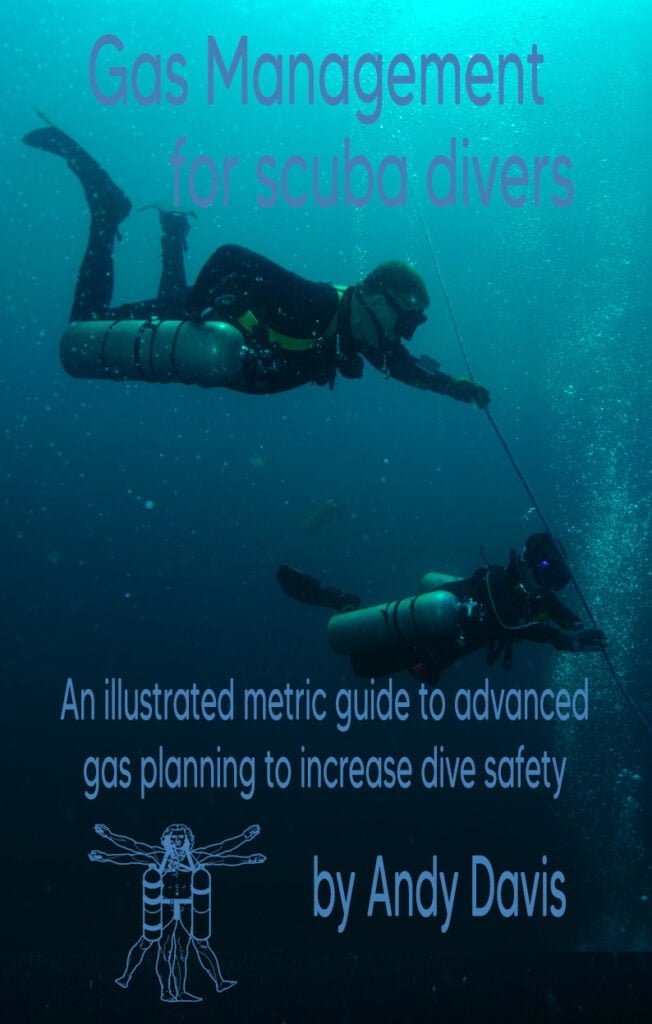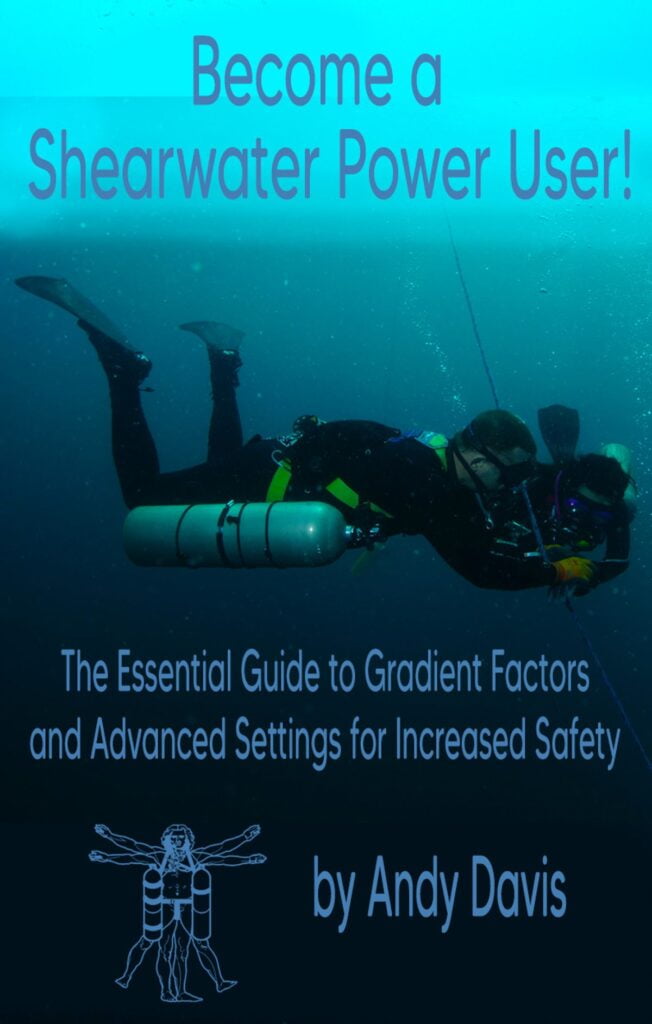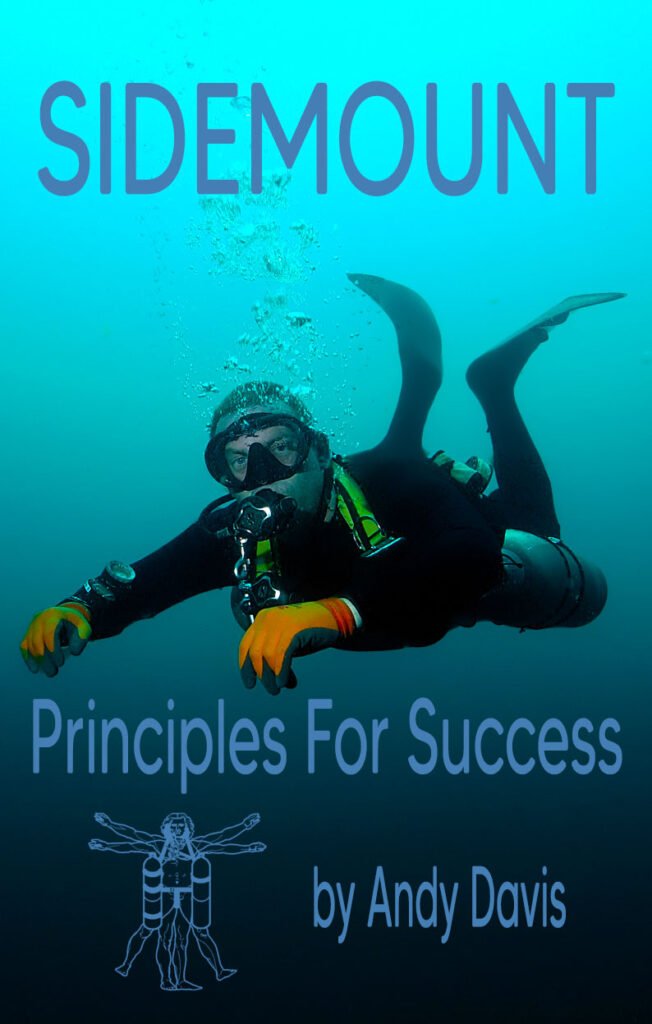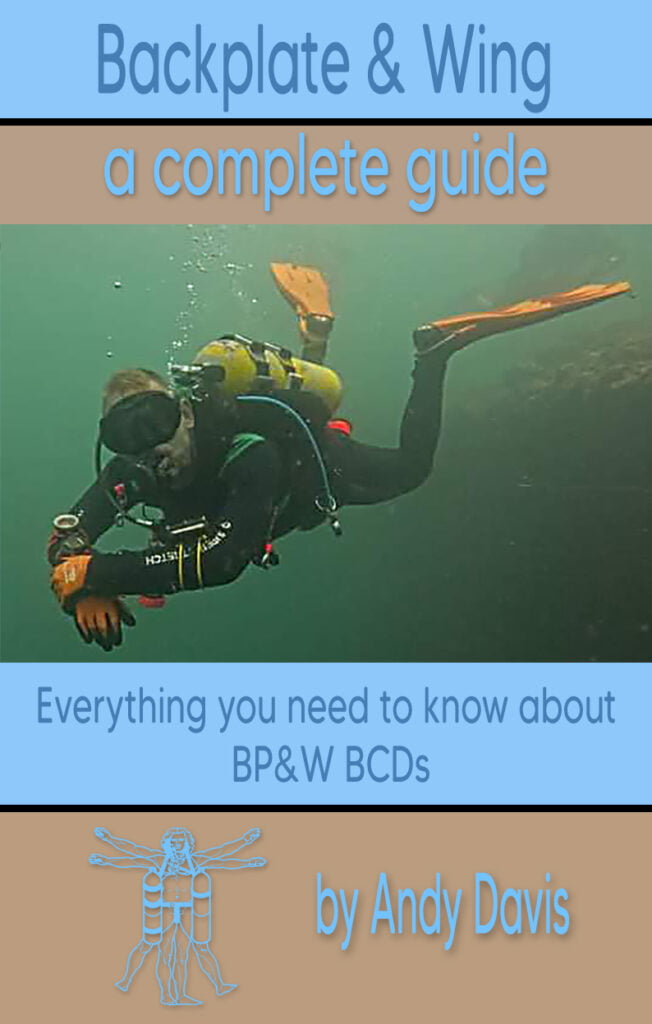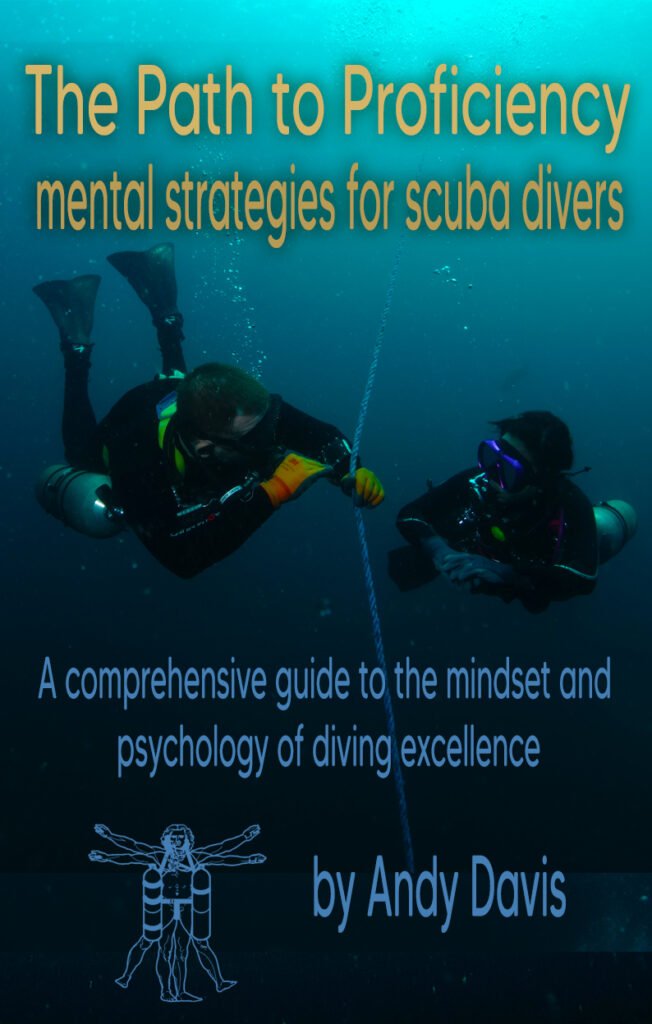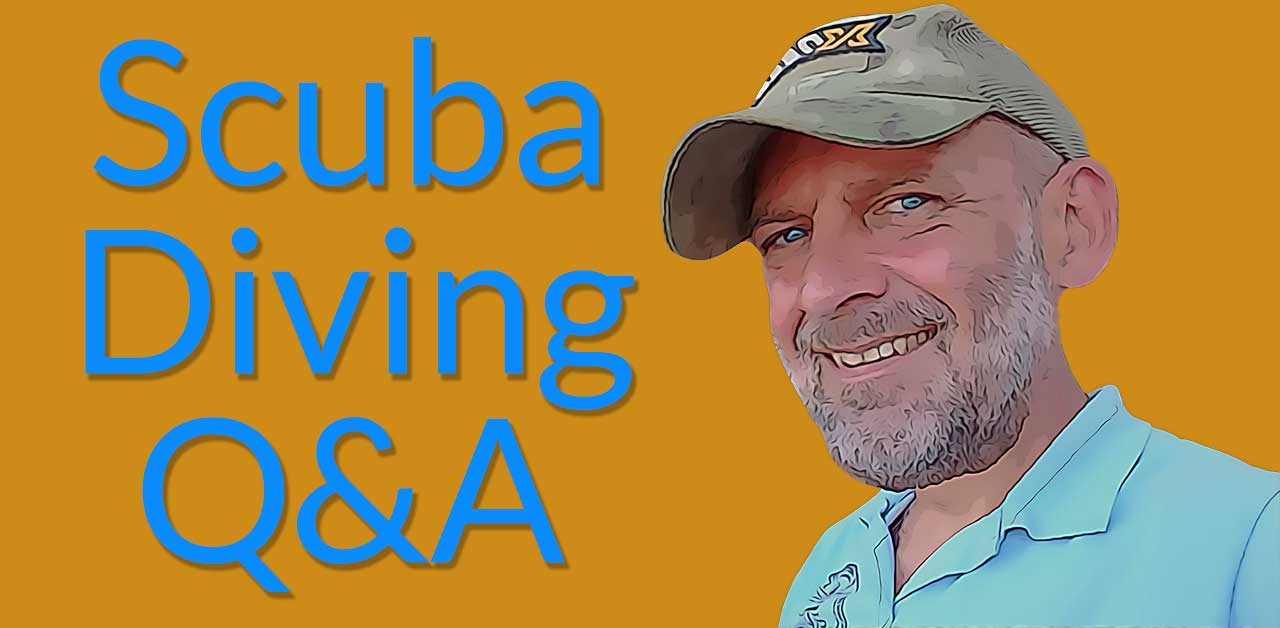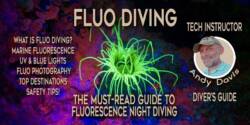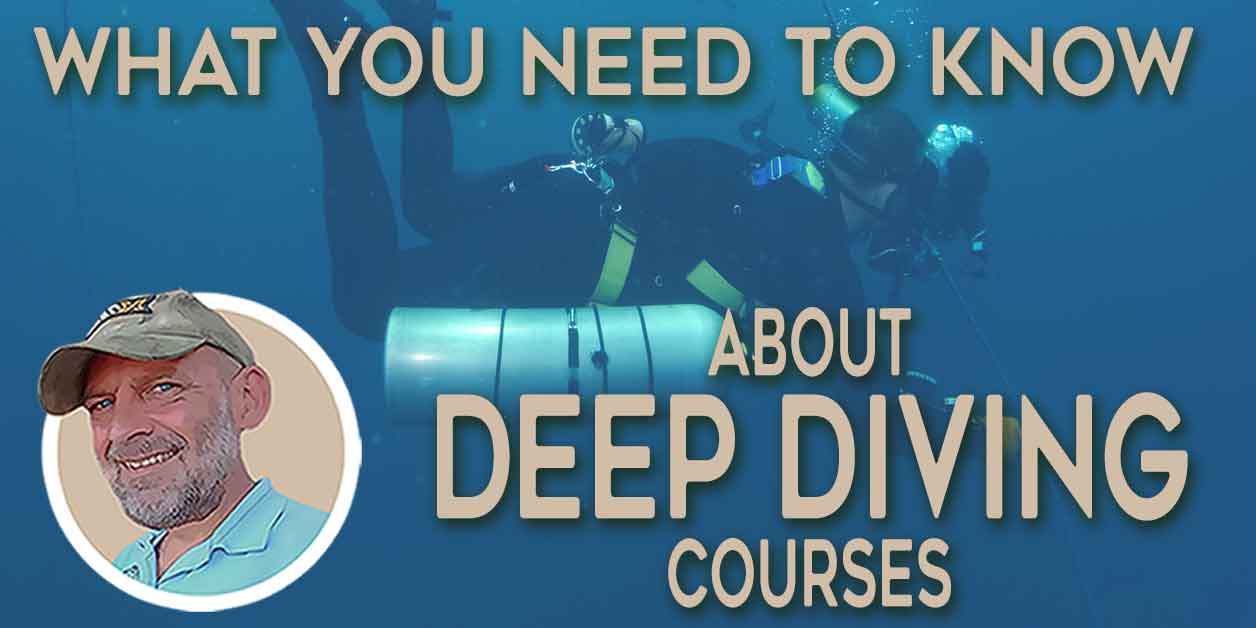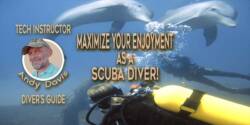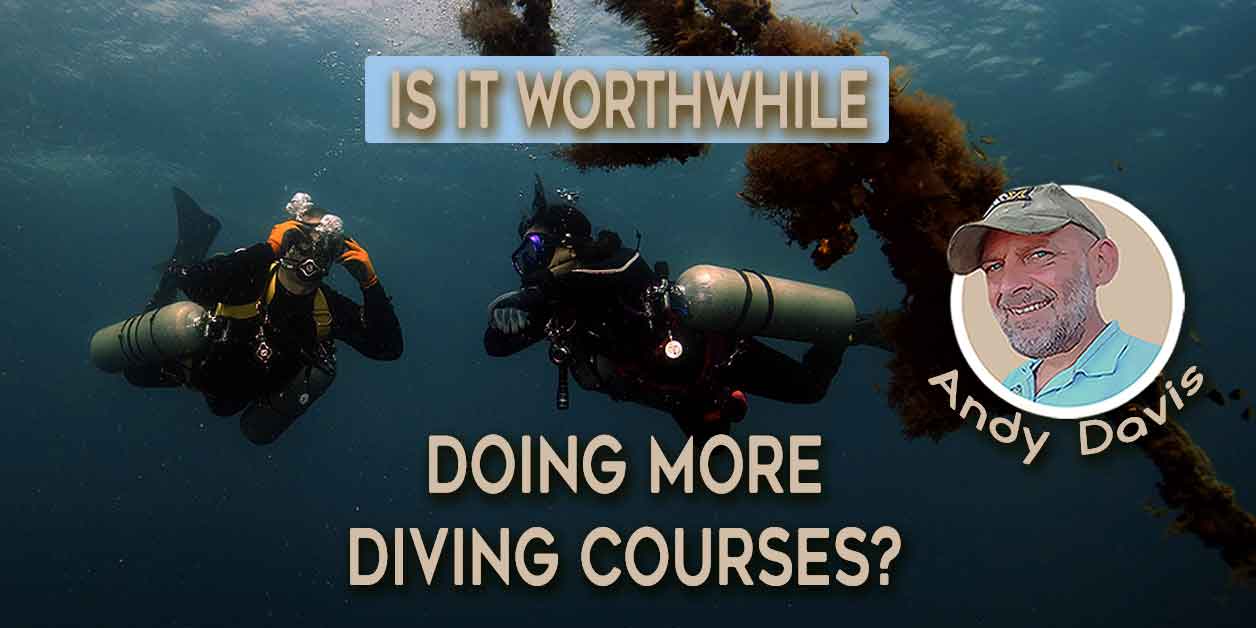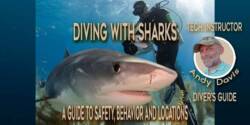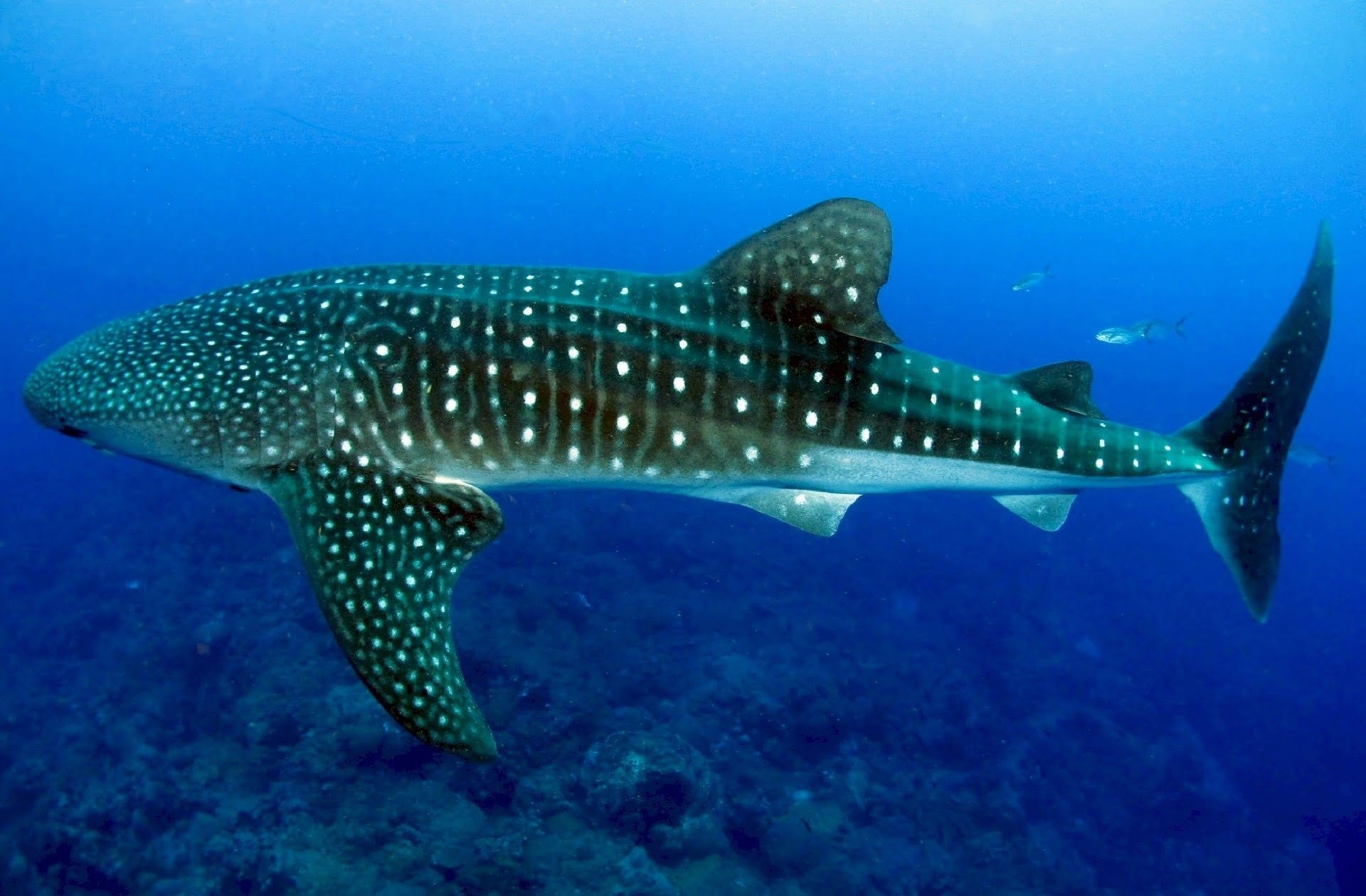Adaptive Diving: Redefining Scuba Diver Independence & Inclusivity
Have you ever wondered how individuals with disabilities can experience the underwater world? Learn about the evolving field of adaptive diving, where disabled divers unlock the potential for limitless adventure, independence, and inclusivity.
Scuba diving, often described as a multidimensional therapy in water, offers an incredible opportunity for individuals with disabilities to break barriers and experience the freedom of underwater exploration.
In this comprehensive guide, you can learn all about adaptive diving; exploring the opportunities for participation, and the numerous physical and psychological advantages it can provide for disabled divers.
Understanding Adaptive Diving
Adaptive Diving falls under the umbrella of adaptive sports and offers a variety of paths for people with disabilities to enjoy scuba diving.
About 15% of the world’s population has some form of physical disability, whether present from birth or resulting from subsequent illness or injury. Adaptive diving caters to the needs of those people.
It encompasses training for disabled individuals to become certified scuba divers, immersive dive experiences without certification, and specialized training programs for dive professionals and diving buddies to support disabled divers effectively.
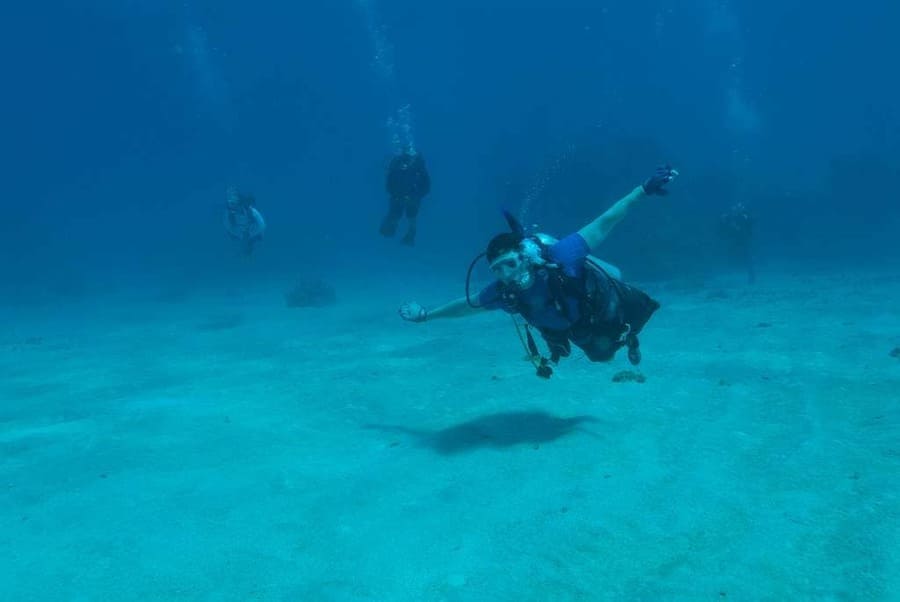
What are Adaptive Sports?
Adaptive Sports encompass a wide range of recreational and competitive activities tailored for individuals facing physical and mental challenges.
These sports undergo thoughtful modifications to ensure that adaptive individuals can participate fully, enjoying the same activities as everyone else. This offers an uplifting sense of inclusivity and empowerment.
The beauty lies in the fact that these adaptations don’t compromise the essence of the sport. Some popular adaptive sports include adaptive scuba diving, surfing, mountain biking, wakeboarding, and skiing, among others.
What is Adaptive Diving?
Adaptive Scuba Diving is a specialized method of training and supporting individuals with various physical and mental disabilities to partake in scuba diving, while striving for as much independence as possible.
- Inclusivity: Adaptive diving aims to make scuba diving accessible to everyone, regardless of physical or mental disabilities. It’s about creating opportunities for people with disabilities to experience the wonders of the underwater world.
- Specialist Training and Equipment: Adaptive diving involves tailored training techniques, revised procedures, and equipment modifications to accommodate the specific needs of each diver.
- Independence: The goal of adaptive diving is to empower disabled divers with as much independence as possible. This means adapting scuba diving skills based on an individual’s abilities, allowing them to enjoy the sport to the fullest.
Why is Adaptive Diving Growing in Popularity?
Adaptive scuba diving breaks down barriers, fosters inclusivity, and makes the vast underwater world accessible to everyone, one dive at a time.
- Empowering Experience: Adaptive Scuba Diving is a profoundly empowering experience, not just for the adaptive diver but also for instructors and dive buddies. The underwater environment minimizes many of the physical limitations encountered on land, granting a sense of liberation.
- Therapeutic Benefits: Underwater, the serene environment and sensation of weightlessness provide therapeutic benefits, particularly for individuals dealing with conditions like PTSD, depression, or anxiety.
- Life-Altering Adventure: Adaptive Scuba Diving is not merely an activity; it can be a life-altering adventure. It captivates the senses, leaving an enduring impact on the lives of those who engage in it.
What is Adaptive Diving Training?
Adaptive Dive Training is a certified method for instructing individuals with a variety of disabilities in scuba diving. It aims to enable them to participate in scuba diving as independently as their capabilities permit. Here’s how it works:
- Equal Learning Opportunity: Adaptive diving students receive the same comprehensive academic education and skill consistency as able-bodied divers. There are no shortcuts or compromises when it comes to training standards.
- Assessment and Adaptation: Each adaptive diver’s abilities are carefully evaluated to determine their capacity to meet course performance standards, both on the surface and underwater. Throughout the training process, adaptations are thoughtfully implemented to equipment, skills, and procedures to facilitate the attainment of these standards.
- Inclusive Certification: The ultimate objective is to grant inclusive certification. Depending on their abilities, some adaptive divers achieve the same certification level as able-bodied divers, while others are certified with the assistance of specially-trained adaptive support buddies. This means that, regardless of their abilities or needs, every individual now has the opportunity to be certified to explore the world’s oceans as a diver.
Who Can Participate in Adaptive Diving?
Certifying as a Diver
Adaptive scuba diving is a highly inclusive sport, open to individuals with various physical and medical conditions. Regardless of your specific diagnosis or impairment, you can experience the wonders of underwater environments through adaptive scuba diving, as long as you meet some basic criteria.
Medical Clearance
One of the fundamental requirements is obtaining medical clearance from a doctor. This step ensures that scuba diving is safe for you and takes into account any specific health considerations related to your condition.
Meeting Training Performance Requirements
During dive training, everyone, both disabled and able-bodied students, adheres to the same academic and performance standards. This means that the evaluation and certification process is based on your competence and ability to meet the established course requirements.
Adaptive Diving Instructors Enable Success in Training
To guide you through this journey, there are specialized adaptive diving instructors who possess the knowledge, techniques, and equipment necessary to help disabled students succeed in meeting the course standards. Their expertise ensures that you receive the appropriate support and training tailored to your unique needs.
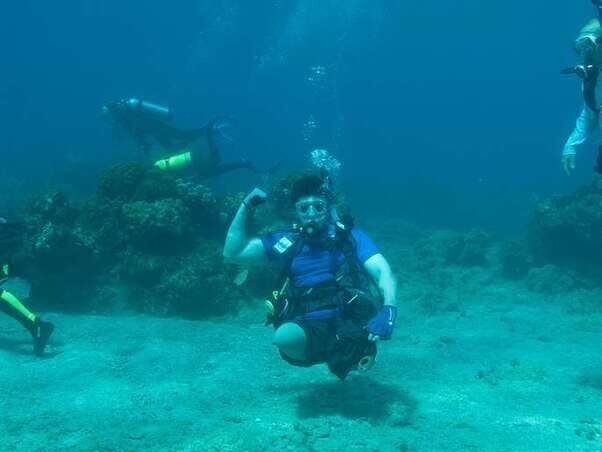
Participating in Scuba Diving
For some individuals with disabilities, meeting all the medical and training criteria for diving certification might not be possible.
However, this doesn’t mean that you can’t explore the underwater world. Adaptive scuba diving offers options for you to enjoy the experience of diving.
Try Dive and DSD Programs For People With Disabilities
One such option is the ‘Try Dive’ or ‘Discover Scuba Diving’ (DSD) program. These programs provide a controlled and supervised introduction to diving. During these sessions, you’ll learn basic scuba skills, safety procedures, and how to use scuba equipment.
These programs are usually limited to shallower depths, with a maximum of 12m (40ft), but that is more than sufficient to explore a coral reef, learn about underwater ecosystems, and view marine life in a natural habitat.
Scuba Diving Can Help With Physical Disabilities
Diving isn’t just a recreational activity; it’s a powerful avenue for gaining freedom and strength, particularly for individuals with physical disabilities. The unique properties of underwater environments offer a range of benefits that can significantly improve your quality of life.
Improved Mobility and Flexibility
Scuba diving in the buoyant water provides a sense of weightlessness, reducing the impact of gravity. This enables greater flexibility and increased movement, which can be particularly beneficial for individuals with physical disabilities. The water’s buoyancy facilitates movements that might not be possible on land.
Enhanced Muscle Strength
Engaging in scuba diving involves swimming and maneuvering underwater, activating various muscle groups throughout your body. This consistent exercise leads to increased muscle strength and improved physical fitness. The water’s resistance adds a unique dimension to your workout.
Rehabilitation Potential
Scuba diving serves as an effective form of rehabilitation. It can aid in improving both mental and physical conditions, contributing to enhanced overall functioning and well-being for individuals with disabilities. The therapeutic aspects of diving are increasingly recognized within the medical community.
Pressure Relief
Hydrostatic pressure, the pressure exerted by water, can work wonders for individuals with physical conditions. It alleviates pressure on joints and muscles, offering relief and comfort. This is especially beneficial for those dealing with conditions that involve pain and discomfort in their muscles and joints.
Increased Physical Activity and Social Participation
Scuba diving encourages physical activity and social engagement. It extends the participation of people with disabilities in social and recreational activities, leading to a richer and more fulfilling life. Connecting with others who share a passion for diving can create a supportive and empowering community.
Therapeutic Benefits of Scuba Diving
Many individuals with disabilities find scuba diving therapeutic. The gentle movements and buoyancy in the water create an environment conducive to relaxation and muscle rehabilitation.
Beyond the physical advantages, diving can have a positive impact on mental well-being. The underwater world’s beauty and tranquility can provide a welcome respite through quietening the mind and encouraging an ‘in the moment’ perception.
Scuba Diving as Multidimensional Therapy
Scuba diving is not just a recreational activity; it’s a multidimensional therapy in water that transcends physical boundaries. It offers a unique opportunity for individuals, both with and without disabilities, to come together and share enriching experiences.
Let’s delve into how scuba diving serves as a powerful therapeutic tool, breaking down barriers and promoting independence.
Embracing a New Environment
- Water as a Therapeutic Medium: Diving takes you into a new environment – water. This transition allows individuals to break free from the constraints of gravity and land, fostering a sense of liberation.
- Heightened Body Awareness: In the underwater realm, you gain a heightened awareness of your body and its movements. You become attuned to your body’s position and capabilities in a way that’s often challenging to achieve on land.
Improving Movement and Coordination
- Enhancing Mobility: Scuba diving serves as an effective means to improve movement and coordination. It offers a unique platform for individuals to navigate their bodies in a weightless environment, making movements more accessible.
- Respiratory Benefits: Correct breathing is a fundamental skill in diving. Learning how to breathe optimally not only supports underwater exploration but also has positive effects on the respiratory system and blood circulation.
Fostering Independence and Responsibility
- Self-Sufficiency: Diving empowers you to take charge of your safety underwater. You learn to manage your equipment, monitor your surroundings, and ensure your well-being, fostering a sense of self-sufficiency.
- Community and Responsibility: Diving encourages camaraderie. You become part of a diverse group, consisting of both individuals with and without disabilities. This sense of belonging instills a profound responsibility for the welfare of fellow divers, reinforcing the importance of community.
A Unifying Experience
- Inclusivity: Scuba diving bridges the gap between individuals with and without disabilities. It creates an inclusive environment where everyone can participate and enjoy the beauty of the underwater world together.
- Shared Adventure: Diving offers the unique opportunity to share adventures with a diverse group of people. Whether it’s exploring vibrant coral reefs or encountering marine life, the shared experiences forge bonds and create lasting memories.
In essence, scuba diving transcends the boundaries of dry land, fostering a sense of exploration and adventure, in addition to discovering the body’s potential in a weightless environment. It’s a form of therapy that empowers people to breathe, move, and connect with others in ways that are both liberating and transformative.
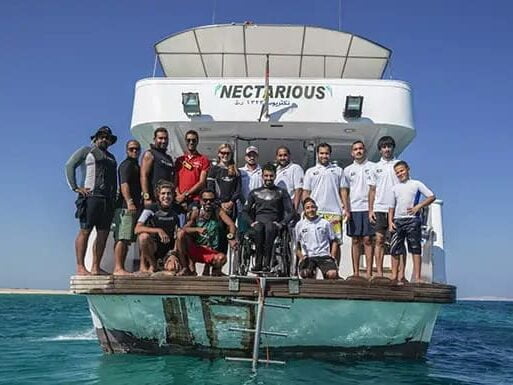
Adaptive Diving Equipment
Adaptive diving is about making the underwater world accessible to everyone, regardless of physical limitations. In this section, we’ll explore the critical role of adaptive diving equipment in ensuring the safety and enjoyment of disabled divers.
Ensuring Access to the Water
Before we delve into the specialized gear, let’s address a fundamental consideration for any adaptive diving program: access to the water.
Without safe and efficient methods for entry and exit, the entire diving experience can become challenging and potentially dangerous for adaptive divers.
Pool Accessibility
For training purposes, a pool should ideally have a chair lift or a wheelchair ramp. These facilities are essential for assisting adaptive divers in entering and exiting the water safely. Attempting to lift or pull an adaptive individual out of the pool without proper equipment can lead to serious injuries for both the diver and the training staff.
Transportation Ease
Transportation is another critical aspect to consider. To make life easier for adaptive divers, consider implementing access ramps instead of steps.
Vehicle modifications for wheelchairs can also be a game-changer, ensuring that divers can reach the dive site comfortably.
Additionally, boat-mounted cranes can assist with smooth entry and exit from dive boats. To facilitate the transition from boat to wheelchair or specialized seating, adaptive divers can wear a body harness with chest-mounted lift rings.
Specialized Diving Equipment For Adaptive Divers
Over the years, specialized adaptive diving equipment has seen significant advancements, offering disabled people the opportunity to participate in scuba diving and achieve success on dive courses. Let’s dive into the essential gear that can make your adaptive diving experience extraordinary.
Webbed Gloves
Webbed gloves are a versatile asset for lower-body paraplegic or amputee divers. These diving gloves serve multiple purposes, making them invaluable for divers with spinal injuries. Here’s why you should consider them:
- Enhanced Propulsion: Webbed gloves are designed to increase water resistance, creating drag as you move through the water. This extra resistance provides an excellent workout for your upper body, including your shoulders and arms. It’s not just about diving; they can also be used for strength and endurance training.
- Wide Range of Options: Darkfin offers a variety of webbed gloves. They cater to a wide range of hand sizes, ensuring a snug fit. Plus, if sustainability matters to you, Darkfin gloves are made from plant-based materials and are 100% biodegradable.
- Affordable Alternatives: If you’re not fixated on brand names, you can find webbed gloves on platforms like eBay at a fraction of the price while maintaining quality and dexterity.
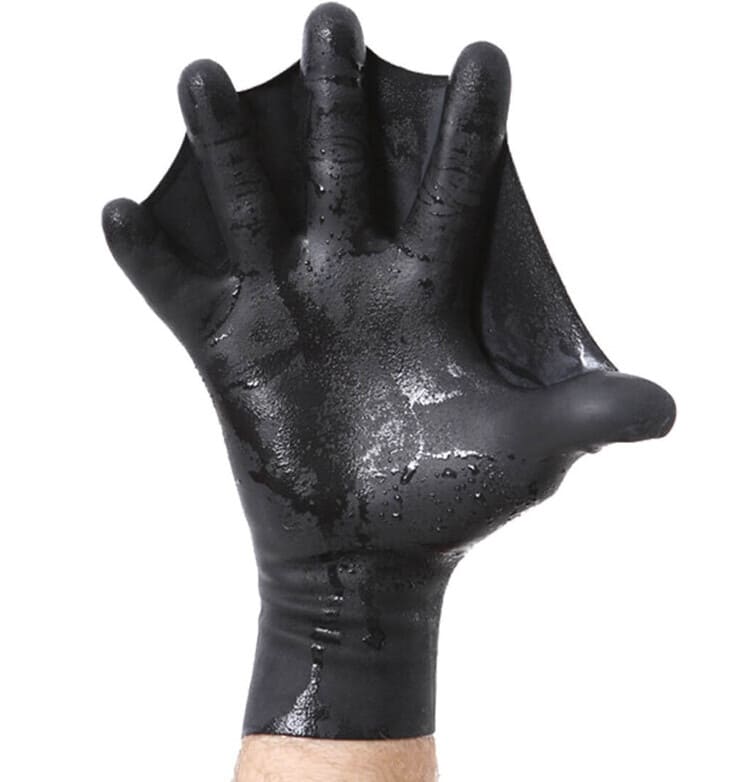
Hand Fins
Hand fins can be a game-changer for adaptive divers, especially those with lower-limb amputations or lower-body paraplegia. These specially designed and manufactured fins offer unique advantages:
- Independence and Propulsion: Hand fins empower adaptive divers to propel themselves independently underwater. They are particularly beneficial for divers with spinal cord injuries or those who require extra assistance using their arms to move through the water.
- Enhanced Resistance: Compared to webbed gloves, hand fins provide significantly larger traction in the water. This added resistance allows adaptive divers to keep up with others, enhancing their overall diving experience.
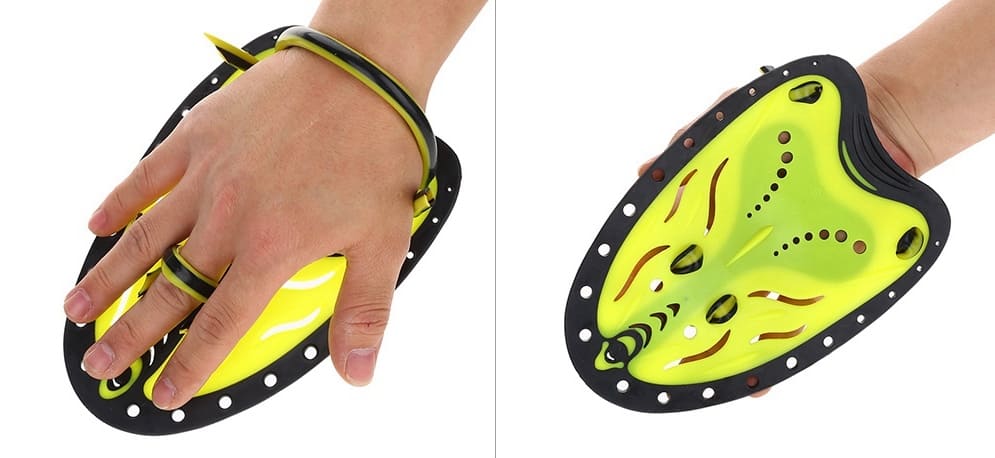
Specialized Fins for Lower Limb Amputees
Standard prosthetic limbs, even custom-fitted ones, present challenges in adaptive diving. Traditional dive fins attached to prosthetics are often inefficient and prone to detachment at depth. Here’s where specialized fins for lower-limb amputees come into play:
- Versatile and Adjustable: A recent innovation in adaptive diving gear is a uniquely designed fin tailored for lower-limb amputees. What sets it apart is its adjustability, eliminating the need for a prosthetic fitting. It can be securely attached to the lower limb using adjustable straps.
- Enhanced Propulsion: This specialized lower-limb fin provides propulsion in both the up and down motion, surpassing standard dive fins that only offer thrust on the downstroke. In fact, it can deliver twice the propulsion of a prosthetic leg fitted with a standard dive fin.
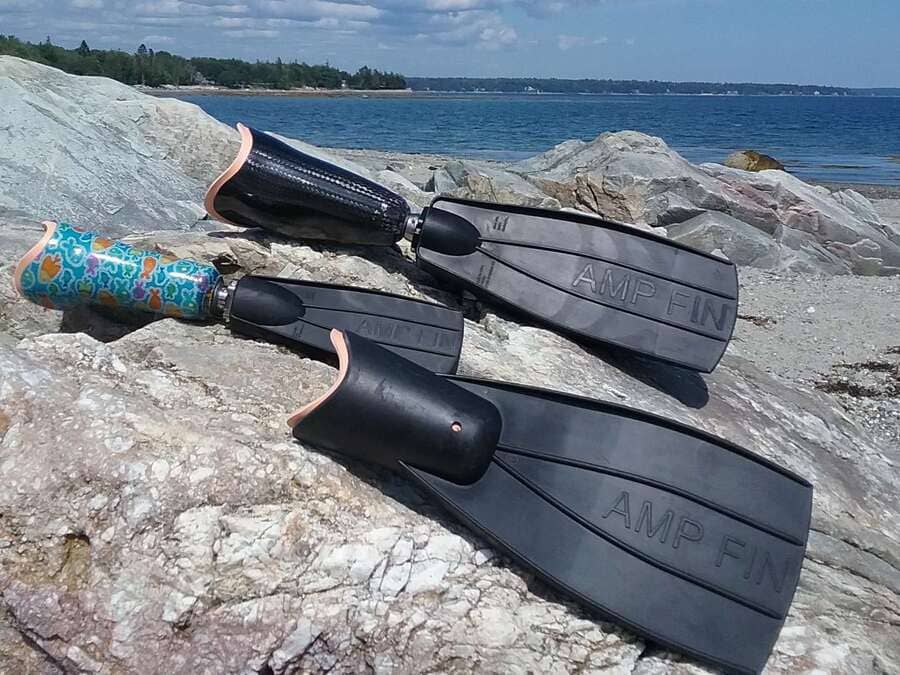
Cylinder Flotation Pods for Trim and Stability
Cylinder weight can be a challenge for many divers, and it becomes even more critical for adaptive divers striving to maintain stability underwater. Here’s how cylinder flotation pods can help:
- Eliminating Roll Tendencies: These innovative devices attach to the outside of the cylinder opposite the diver. Their ingenious design effectively eliminates most of the cylinder’s roll tendencies, ensuring that you can maintain proper trim and stability while diving.
- Enhanced Enjoyment: By addressing the issue of cylinder weight, flotation pods allow adaptive divers to concentrate fully on enjoying their dive experience without the distraction of unwanted movement.
As technology continues to advance, the world of adaptive diving gear will evolve even further. These ongoing efforts aim to refine and improve the adaptive diving experience, ensuring that divers of all abilities can explore the underwater world with confidence and freedom.
Adaptive Diving Gear For Specific Disabilities
Adaptive Diving Equipment for Paraplegic Divers
For paraplegic divers, specialized equipment plays a pivotal role in ensuring a safe and enjoyable diving experience. Key equipment considerations include:
- Webbed Gloves: Webbed gloves are essential for propulsion through the water. They increase resistance and help divers navigate effectively.
- DPV: Another option worth exploring for paraplegic divers is diver propulsion devices (DPV). DPVs significantly expand the range of underwater distances a diver can cover.
- Regulator Configuration: Regulators must be configured for safe use based on the diver’s specific needs and limitations.
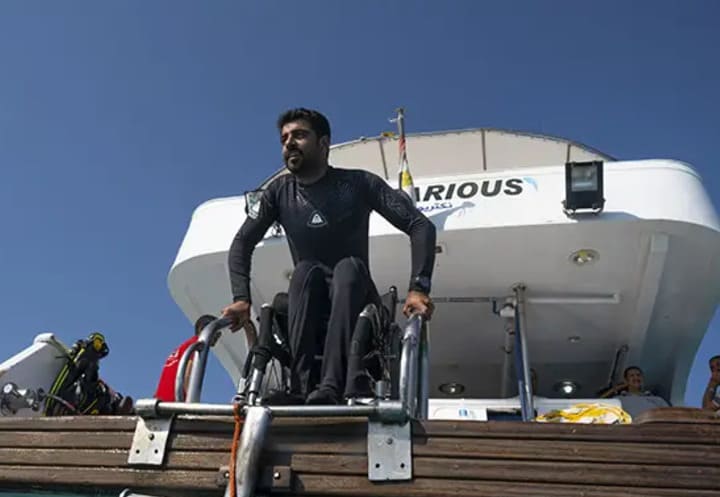
Adaptive Diving Equipment for Amputee Divers
Amputee divers require equipment adaptations that consider their unique challenges. Equipment considerations for amputee divers include:
- Regulator Placement: Placing the regulator on the side opposite to an upper-limb amputation is crucial to ensure that the diver can recover it independently.
- Weight Distribution: Managing buoyancy and trim can be another concern for amputee divers. Limbs can weigh a considerable amount, and the loss of a limb can impact a diver’s balance underwater.
- Specialized Fins and Webbed Gloves: Specially designed fins and webbed propulsion gloves for lower-limb amputees provide a more efficient means of traveling underwater.
Conventional Dive Gear That Has Advantages for Adaptive Diving
When it comes to adaptive diving, some standard dive gear can be particularly advantageous. These pieces of equipment can make a significant difference in enhancing your diving experience, offering benefits that cater to the needs of disabled divers. Here’s a closer look at some of them:
Full-Face Masks
Full-face masks are a versatile option that holds several advantages for adaptive divers. These masks provide:
- Expanded Field of Vision: These masks offer a broader field of vision. This can be particularly valuable for divers with visual impairments.
- Regulator Recovery Made Easy: Full-face masks simplify regulator recovery, making it less challenging for divers with limited grip or quad amputations. You can focus more on the dive and less on equipment management.
- Communication: Some full-face masks come equipped with communication units, replacing the need for hand signals. This feature is especially useful for visually impaired divers and those with upper-limb disabilities.
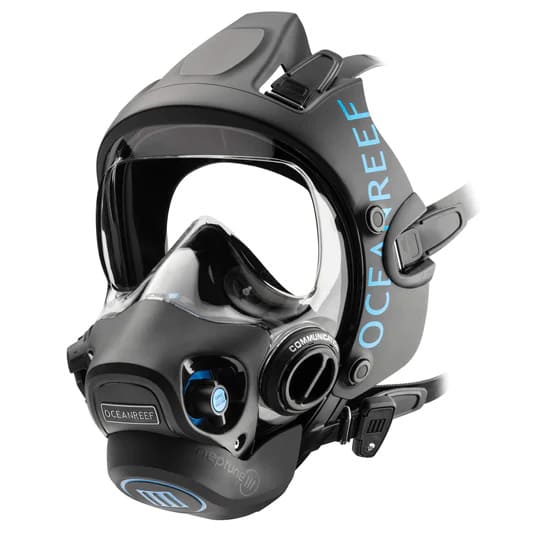
Diver Propulsion Vehicles (DPVs)
Diver propulsion vehicles (DPVs), also known as diving scooters, are another option to consider for adaptive diving. These devices are known for their ability to cover significant underwater distances, offering several advantages:
- Extended Range: DPVs provide an extended range for all divers, making it easier to explore larger underwater areas and cover more ground during a single dive.
- Training Considerations: While DPVs offer fantastic benefits, it’s essential to undergo proper training to control these devices effectively, especially when stopping or ascending. Without appropriate training using a DPV can add risks to a dive.
- Cost Considerations: It’s worth noting that DPVs can be on the expensive side, so it’s essential to factor in your budget when considering this equipment. If a DPV is beyond your budget, you can still enjoy adaptive diving by choosing dive sites that align with your skill level and abilities.
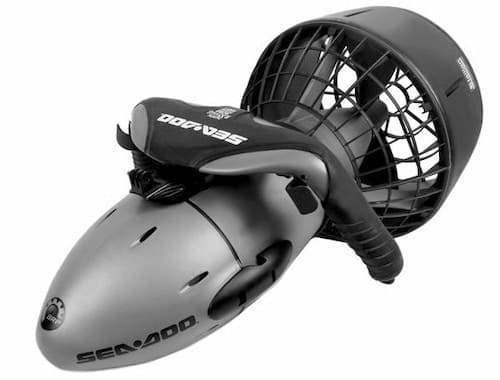
Equipment Considerations For Dive Professionals Working With Adaptive Divers
If you’re an instructor or guide working with adaptive divers, here are some additional considerations to keep in mind:
- Tank Handles: Handles on tanks can be invaluable for providing control and physical assistance to adaptive divers, both above and below the surface.
- Communication Devices: Underwater communication devices like slates, wetnotes, and cue cards can be helpful, especially when working with divers with learning difficulties or mental disabilities.
- Weight Systems: Divers may require greater flexibility in weighting placement to achieve proper trim and positioning in the water. Weight harnesses, trim weight pockets, and clip-on weights can help achieve solutions for stability underwater.
Adaptive diving is all about making the underwater world accessible and enjoyable for individuals with disabilities. With the right equipment and training, disabled divers can experience the beauty and wonder of the underwater world while gaining confidence and a sense of freedom.
Training Available For Helping Divers With Disabilities
Adaptive Diving Instructor Courses
Diving instructors can enroll in specialist courses to develop the skills, knowledge, and techniques necessary to adapt existing dive certification training for people with disabilities.
- Understanding Physical Limitations: Adaptive diving instructors gain insight into the diverse physical limitations some students face during diving activities.
- Modifying Diving Techniques: Training involves learning how to modify diving techniques to make underwater experiences accessible to a broader range of individuals, including those with physical and mental disabilities.
- Specialized Techniques for Disabled Divers: These courses include exercises to enhance understanding and application of adaptive techniques specifically tailored for disabled divers.
- Fundamentals of Working with Diverse Divers: This training equips instructors with the fundamentals of working with a diverse range of divers, including those with unique needs.
Adaptive Support Diver Courses
An adaptive support diver is someone trained to assist and accompany individuals with disabilities during scuba diving activities. The focus is on creating an inclusive environment, allowing people with physical or cognitive challenges to experience the underwater world safely.
Key aspects of an Adaptive Support Diver Course include:
- Disability Awareness: Understanding different types of disabilities and their implications for scuba diving.
- Communication Techniques: Learning effective ways to communicate underwater, often using hand signals or specialized communication devices.
- Adaptive Equipment Use: Familiarization with adaptive diving equipment to accommodate specific needs, such as modified buoyancy devices or communication aids.
- Emergency Procedures: Specialized training in handling emergencies involving adaptive divers, ensuring a swift and effective response.
- In-Water Support Techniques: Techniques for providing physical support and assistance to adaptive divers, ensuring a safe and enjoyable experience.
Example Skill Syllabus From An Adaptive Support Diver Course
- Multiple-person transfer and lifting techniques to assist divers into and out of the water.
- Assisting a diver with limited or no lower or upper body strength to don a full suit while protecting the extremities.
- Touch-hand signals underwater, including assessment, movements, pressure and depth checks, regulator clearing, and mask clearing.
- Towing a simulated tired diver at least 25 meters.
- Responding appropriately to a distressed diver both on the surface and underwater.
- Swimming a minimum of 10 meters/33 feet using adaptive arm stroke techniques.
- Assisting a diver with actual or simulated amputation or paraplegia to remove scuba equipment and exit the water.
Where to Find Adaptive Diving
Numerous non-profit charities and organizations around the world are dedicated to certifying disabled divers and providing adaptive dive buddy support. Additionally, numerous dive training agencies offer adaptive instructors and support diver specialty courses.
Diveheart (USA): Diveheart is a nonprofit organization focusing on volunteer-driven initiatives. It aims to build confidence, independence, and self-esteem in children, adults, and veterans with disabilities through scuba diving programs.
The Scuba Trust (UK): The Scuba Trust is dedicated to providing disabled individuals with the opportunity to experience scuba diving. They specialize in adaptive diving programs, collaborating with instructors and dive centers to offer training and support for individuals with physical and learning disabilities.
Adaptive Diving Has Value For You
Scuba diving with disabilities is not just a possibility; it’s a life-changing experience. The underwater world offers freedom, therapy, and adventure to those who dare to explore it.
With the right training, equipment, and support, adaptive diving can break down physical barriers and open up a world of possibilities.
Whether you have a disability or want to support adaptive diving, remember that the journey is about abilities, not limitations. Dive in and discover the incredible world of adaptive scuba diving.
About The Author

Andy Davis is a RAID, PADI TecRec, ANDI, BSAC, and SSI-qualified independent technical diving instructor who specializes in teaching sidemount, trimix, and advanced wreck diving courses.
Currently residing in Subic Bay, Philippines; he has amassed more than 10,000 open-circuit and CCR dives over three decades of challenging diving across the globe.
Andy has published numerous diving magazine articles and designed advanced certification courses for several dive training agencies, He regularly tests and reviews new dive gear for scuba equipment manufacturers. Andy is currently writing a series of advanced diving books and creating a range of tech diving clothing and accessories.
Prior to becoming a professional technical diving educator in 2006, Andy was a commissioned officer in the Royal Air Force and has served in Iraq, Afghanistan, Belize, and Cyprus.
In 2023, Andy was named in the “Who’s Who of Sidemount” list by GUE InDepth Magazine.
Purchase my exclusive diving ebooks!
Adaptive Diving FAQs
Absolutely, many disabled individuals can and do enjoy scuba diving with the right training and adaptive techniques.
Yes, wheelchair users can participate in scuba diving through adaptive equipment and specialized training.
An adaptive diver is someone who engages in scuba diving with modifications and specialized techniques tailored to their unique physical abilities or disabilities.
Yes, blind individuals can scuba dive using alternative communication and sensory techniques, often guided by adaptive diving instructors using touch signals.
Absolutely, amputees can dive by adapting equipment and techniques to accommodate their specific needs. Webbed gloves, hand fins, or DPVs can be used for propulsion.
Scuba diving has shown positive effects for individuals with PTSD, providing therapeutic benefits through the calming underwater environment and controlled breathing techniques.
Yes, scuba diving has been known to help with anxiety and depression. The underwater experience, controlled breathing, and serene environment contribute to a sense of calm, making it a therapeutic activity for mental well-being.
Originally posted 2023-09-29 14:23:13.


